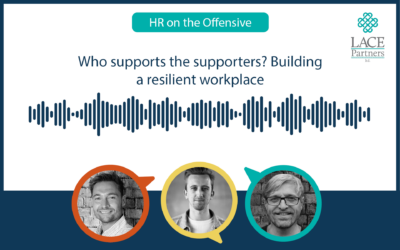We bring payroll professionals together on a regular basis to share ideas, best practice and insights at our discussion forums. If you’d like to join our growing community and take part in our next forum, drop Adam Morris or Chris Kirby a line. In the meantime, here are the key takeaway points from their recent discussion. Why is it becoming more and more difficult to find Payroll talent? And how difficult is it to manage the complexities of the new-look global hybrid workforce? These are just a couple of the key points raised in our recent Payroll Forum as the sub-sector continues to find its place in a post-pandemic world.
Should Payroll get better at PR?
An overarching and longstanding issue for Payroll as a function is the difficulty in retaining ambitious talent. How much of this is down to Payroll as a industry hiding its light under a bushel for too long?
Payroll is an integral function of any organisation and yet it takes a back seat to other team functions, such as Sales and Marketing or Finance, when it comes to championing its importance. Payroll leaders recognise there are challenges in keeping people happy and are seeking ways to ensure that people keep learning and stay engaged. Promoting payroll as a legitimate and advantageous career path should be encouraged. Leaders need to find ways to drive Payroll as a career of choice and not just a stepping stone to something else.
Whether this should be the responsibility of individual Payroll leaders or a wider industry-led push is yet to be determined, but the consensus is that Payroll needs to get much better at its own PR – and fast.
Taking a second look at cost efficiency decisions
Securing Payroll as an enviable career choice is particularly important right now, given that there are challenges in locating and retaining talent.
A number of leaders discussed these issues at our recent Payroll Forum, citing the potential adverse impact of cost efficiency exercises. Examples were given of organisations relocating Payroll positions to other global regions that are lower wage and therefore lower cost.
Seeking the finest Payroll talent is getting trickier as new regions emerge to compete with the UK as the major resource for the industry. The increasing shift to global hiring also impacts the sector, but it remains the most logical step to combat a skills shortage. However, inflation concerns mean that cost savings are less than they once were, which is again shifting the outlook for Payroll talent. For example, while countries like Poland and Costa Rica held appeal thanks to cost savings on Payroll talent, this is no longer the case.
With geopolitics in a constant state of flux and unprecedented pressures on the global economy due to a combination of shocks over the last few years, it’s vital that HR and Payroll leaders remain flexible and forward thinking when hiring talent.
Growing recognition of the importance of Payroll
Crises often result in opportunities through which business functions can make profound transformative decisions in truncated time periods. And this is what has happened with Payroll.
A major positive brought up at the meeting by one contributor is that Payroll stepped up during the worst moments of the pandemic, and is continuing to do so as the world adjusts. As a result of this, there is greater recognition internally and externally, that Payroll needs greater investment. Improving skills, development and technological transformation is now vital for Payroll to take on the challenges that come with global, cross-border functionality.
This led on to a discussion over whether it’s ever the right decision to outsource Payroll wholesale. A lot depends, of course, on the size and location of the organisation, but overall there is a valid argument for retaining Payroll in-house but backing its future success with strategic investment. This would also have a knock-on effect for finding and retaining talent, given the structured career path created by forward-thinking investment decisions.
Managing the increased complexities of a hybrid or remote workforce
One of the most significant challenges facing Payroll as a function is the increased complexity of managing a hybrid or fully remote workforce. Employees may be working from different countries or may want to move regularly from region to region, throwing up difficulties for Payroll every time.
There is no simple solution to this very modern challenge, but there must be flexibility for the payroll team. It’s also necessary that the potential gravity of the risk to business is highlighted by the team. The risk of problems caused by tax regulations and compliance, for example, may only be known by the payroll team and it’s therefore their responsibility to make business leaders aware.
Having said that, discussion at the forum made it clear that the responsibility of tax domiciliation is far from clear. Whether it should be the employee or employer who takes that on is a matter of debate. A solution trialled by one of the businesses present at the forum was to contractually state to the employee that they must work within a certain distance of the nearest office. This is clearly an area that needs a bespoke approach by the employer as there is no regulatory body to enforce this kind of difficulty associated with flexible and remote working practices.
Delivering exemplary service across different time zones
The ability to properly service across multiple regions and time zones is another new challenge for Payroll. If an organisation has a single, centralised function for Payroll, how can they answer queries from employees working in different regions.
Questions regarding pay are generally of an urgent or semi-urgent nature for the employee and waiting for hours isn’t necessarily the way to improve their experience. How best to manage this, and all of the other issues facing Payroll in 2022, must come down to leadership. Many at the forum expressed their opinion that now is the time for Payroll leadership to step up and support the team more strongly.
With every business function, it’s the leaders that share and define the culture of the overarching organisation and the team itself. And it’s no different for Payroll. There is an urgent need for leaders to clearly and confidently show that they are willing and able to drive the culture and behaviours of the business.
Leadership must build on the progress made during the pandemic
It’s felt that the experience of working in different ways through the pandemic has led to a more inter-connected cross functionality, with people from different locations and teams more used to working together. For example, one of the businesses kickstarted a matching initiative specifically to bring together people from different parts of the business for a virtual catch up.
These kinds of connections simply didn’t exist before COVID-19 hit, and there are many positive outcomes for Payroll from the experience. Remote working and changing attitudes from leadership has also resulted in a more connected business for many.
Now that remote or hybrid working is so prevalent, Payroll is being brought firmly into the onboarding process with line managers including the function in company inductions. In other words, Payroll now has a bigger voice and a larger presence for many organisations than it did before the pandemic. And this forms the ideal basis for leaders to build further on these positive changes to bring out further into the light.
If you have questions on what you’ve read or want to get involved in our Payroll forum, simply reach out via the form below and we will be in touch soon.






